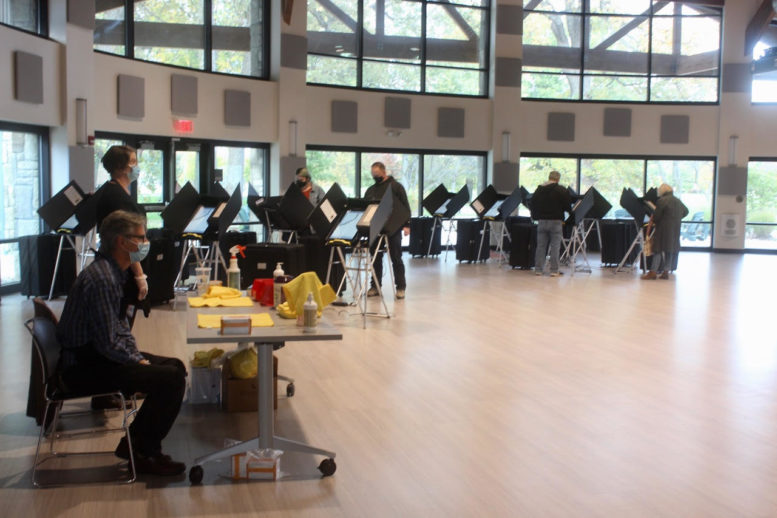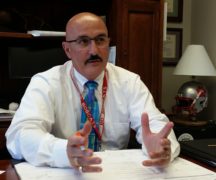By JAN LARSON McLAUGHLIN
BG Independent News
Bowling Green area voters have cast their ballots for the last time on a 0.5% income tax for the schools.
After a contentious campaign, residents in Bowling Green City School District voted to renew the income tax – and convert it from a 5-year levy into a continuing levy.
The continuing tax passed with 58% of the vote, with the unofficial count of 3,437 to 2,525.
“Certainly, the outcome of the levy is a big statement,” Bowling Green Superintendent Francis Scruci said after the votes were counted. “Despite the last couple years being difficult, the community as a whole supports the schools.”
“It will be years before the district has to come back to the voters for operating funds,” Scruci said.
Opposition to the continuing levy did not like the fact that the income tax would no longer need their approval every five years.
Supporters saw that by changing it to a continuing levy, the district can collect the same amount of income tax rather than asking the same voters to approve the same money every five years – and facing the risk that they will say “no.”
That change will allow the school district to actually use the $3.8 million generated by the income tax, rather than keeping a large chunk in reserves – just in case voters don’t support it the next time it’s on the ballot.
“This will be the election result that will benefit the kids and the staff, and the community as a whole for years to come,” Scruci said.
In May of 2020, school district voters approved the effort to do the same with two property tax levies that also kept reappearing on ballots. Voters resoundingly supported the ballot issues converting the two five-year operating levies into continuing levies.
The income tax on Tuesday’s ballot is the last five-year issue for the district.
“People see the benefits,” Scruci siad.
During a recent board of education meeting, David Conley, financial consultant for the school district, presented an overview of the income tax issue on the ballot. This will be the eighth time for district residents to vote on the 0.5% income tax since it was first passed in 1992. Passing it as a continuing tax will not increase the amount of money paid by residents. It will just keep the district from having to ask for the same $3.8 million every five years.
It used to be that “taxpayers felt they were keeping you honest,” by making districts come back to get the same amount of money, Conley said. But the current trend in education is voters realizing the benefits and voting to turn temporary levies into continuing levies, he said.
The benefits, Conley said, include reducing “voter fatigue,” cutting election costs, and freeing up the school district’s financial reserves.
The district currently has $22 million in reserves that can’t be spent, he said.
With the passage of the income tax issue, a portion of that $22 million will be freed up to expand educational services for students, invest in new or existing buildings, or reduce outstanding debt balances.


